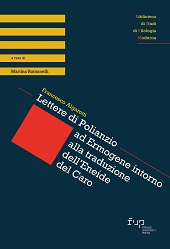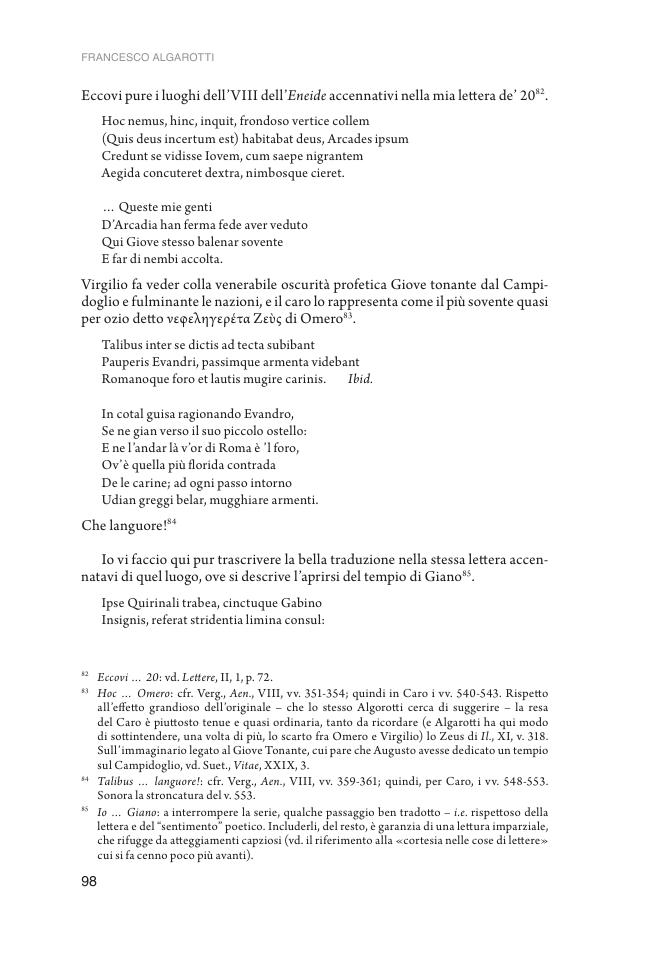2022 - Firenze University Press
E-book
Digital Version
Lettere di Polianzio ad Ermogene intorno alla traduzione dell'Eneide del Caro
191 p.
- Includes bibliographical references and index.
- Fredda, sconcia, puerile. Per come emerge dalle Lettere di Polianzio, l'Eneide di Caro è forse uno dei più odiosi ‘delitti' letterari della storia moderna. Eppure, fra commistioni estetico-scientifiche e calibrate allusioni al milieu arcadico, Algarotti trasforma la demolizione della più acclamata fra le traduzioni virgiliane in un eccellente casus belli: gli eclettici salti linguistici e gli ammiccamenti culturali (gli antichi, Tasso, Boileau, lo Scriblerus Club) fanno dell'Eneide l'occasione ottimale per confutare e rovesciare l'intero apparato critico e culturale dell'Italia post-barocca, frutto di una profonda elaborazione della crisi del gusto moderno - italiano soprattutto - di inizio Settecento. Interrogativi e ricerche per ‘pensare' la poesia e il ruolo dell'intellettuale. [Testo dell'editore]
- Cold, lewd, childish. As emerges from the Lettere di Polianzio, Caro's Aeneid can perhaps be seen as one of the most heinous literary 'crimes' in modern history. And yet, Algarotti through employing aesthetic-scientific mixtures and calibrated allusions to the Arcadian context transforms what many view as the demolition of the most acclaimed of Virgil's translations into an excellent casus belli. Eclectic linguistic leaps and cultural winks (the ancients, Tasso, Boileau, the Scriblerus Club) render the Aeneid a perfect fit for rejecting and overthrowing the entire critical and cultural apparatus of post-Baroque Italy. The work is the result of a profound elaboration of the crisis of modern taste - especially Italian - of the early eighteenth century. Questions and research to 'think' poetry and the role of the intellectual. [Publisher's text]
- Fictitious letters between Polianzio, pseud. of F. Algarotti (1712-1764) and Ermogene, pseud. of Giuseppe Santarelli (1710-1790).
- Online only available
-
Informations



